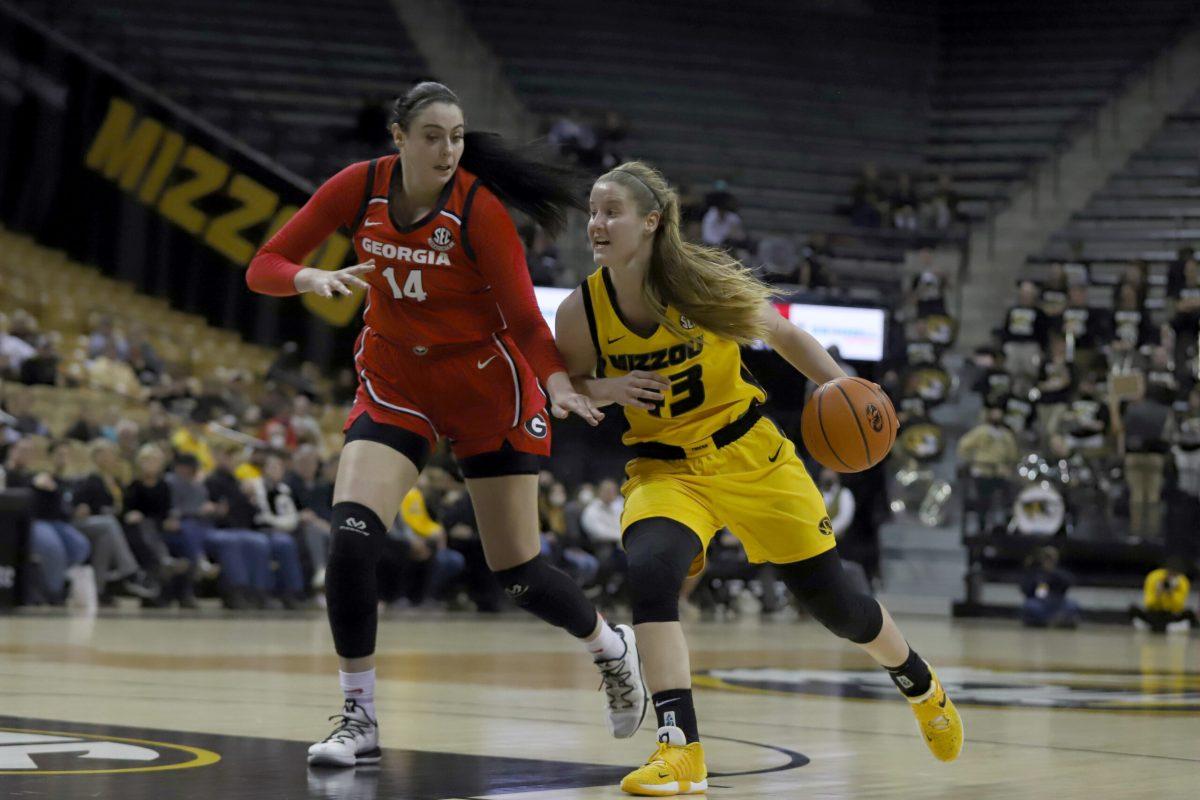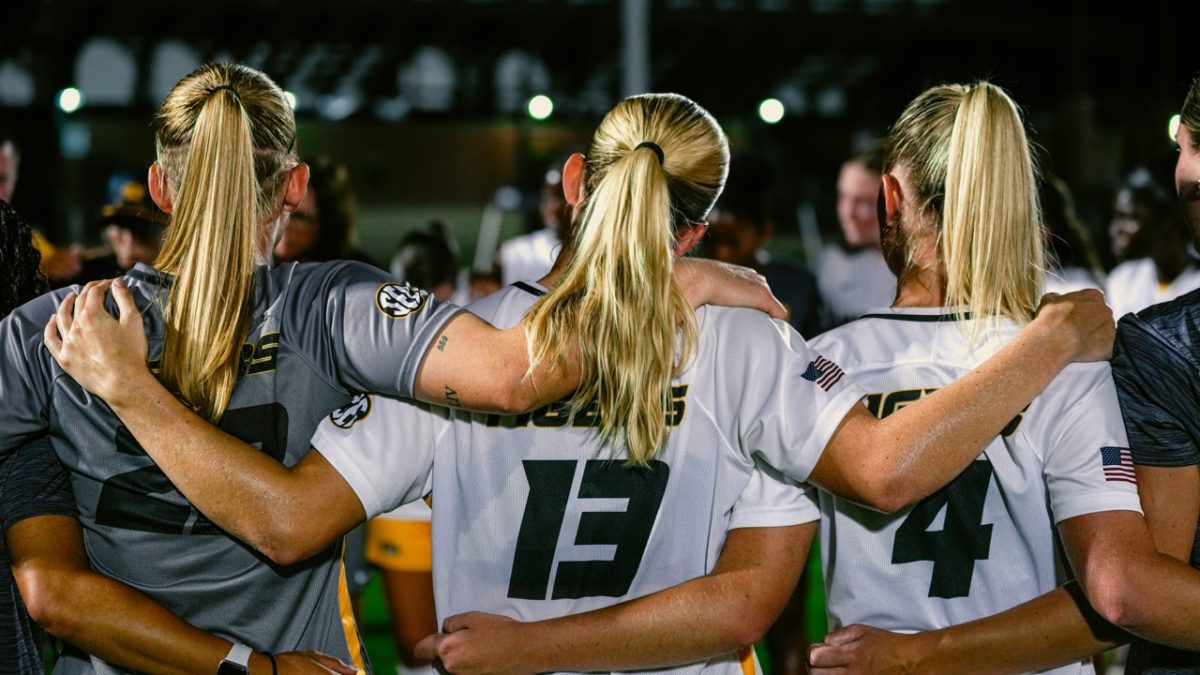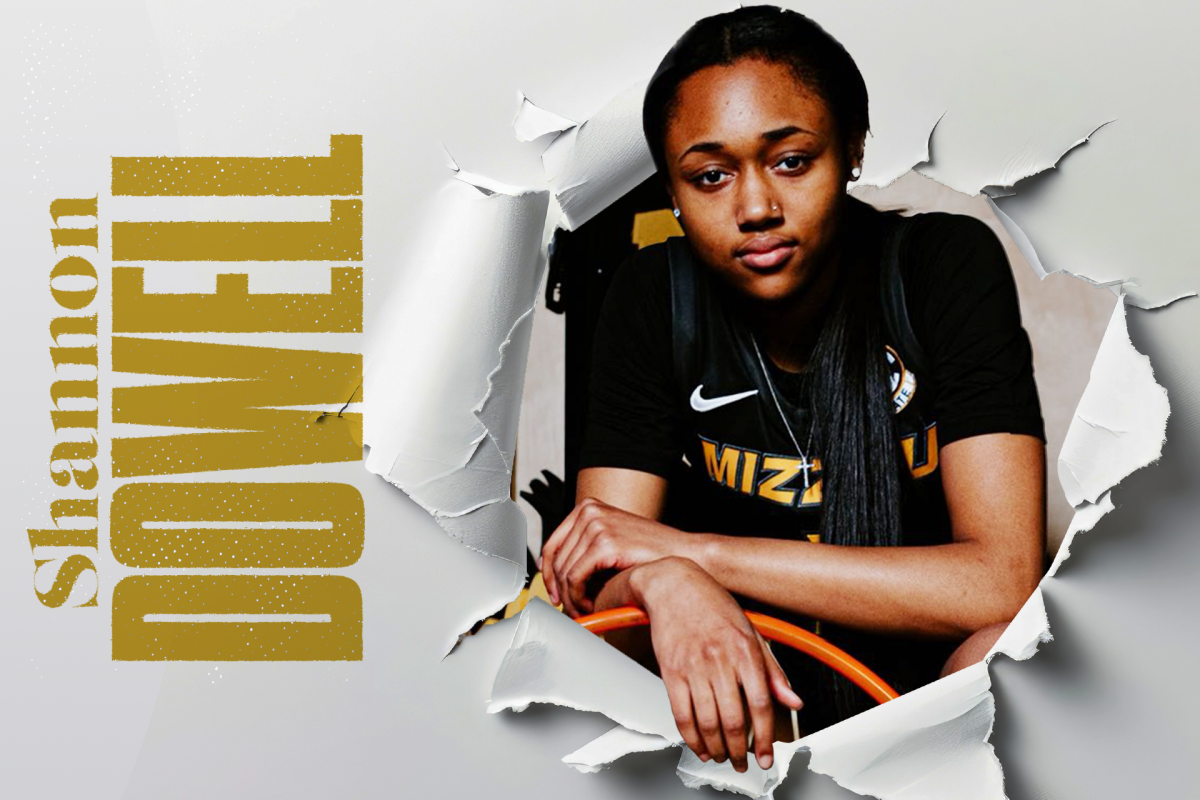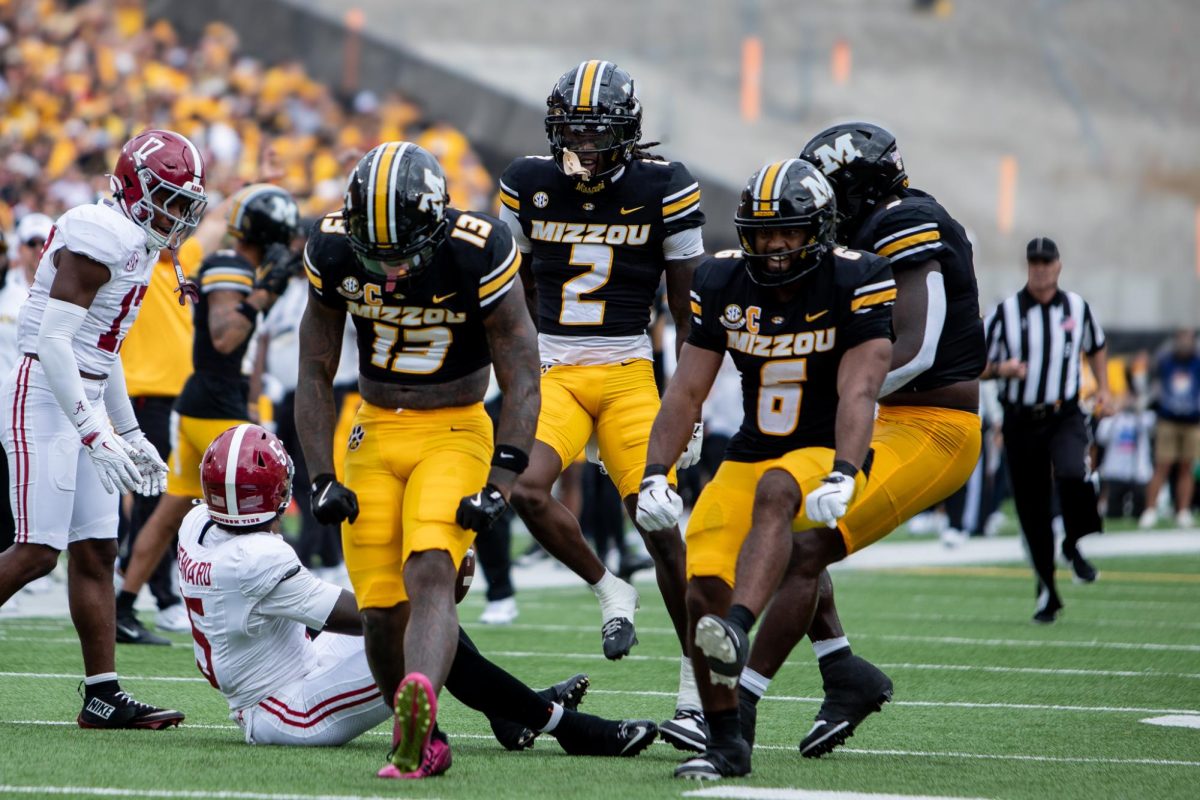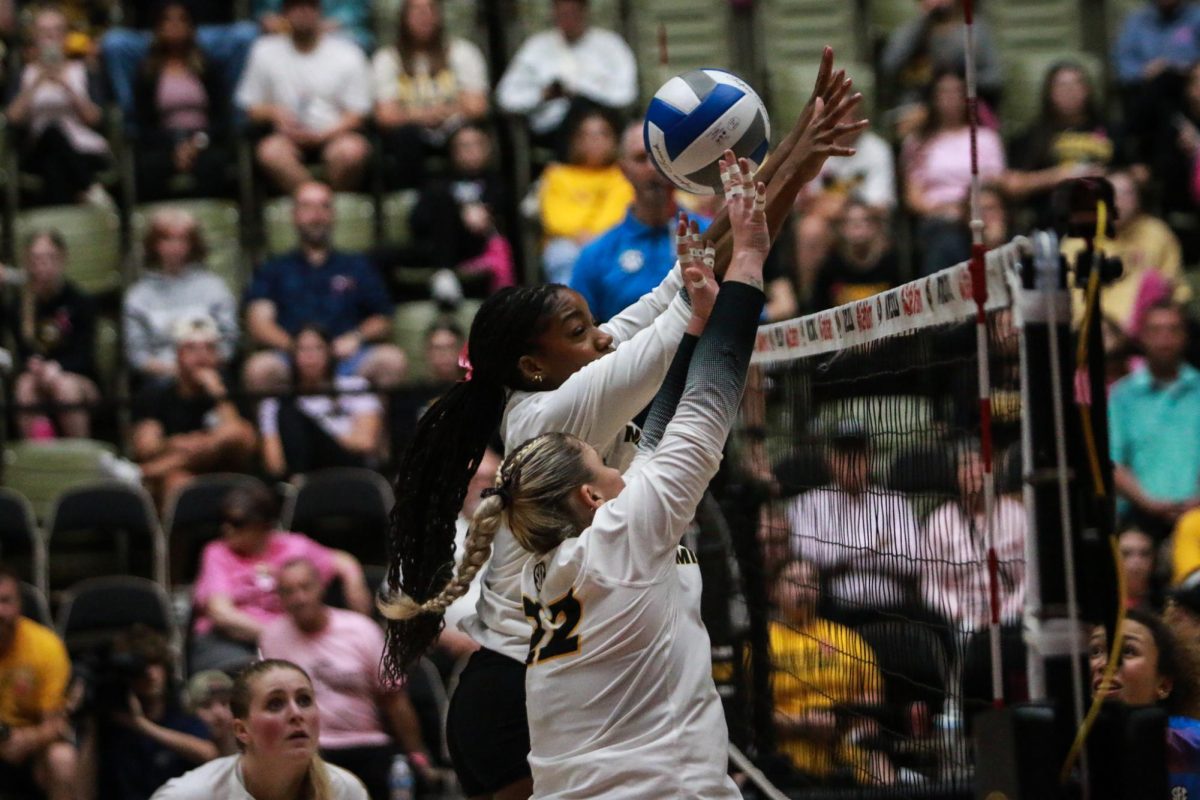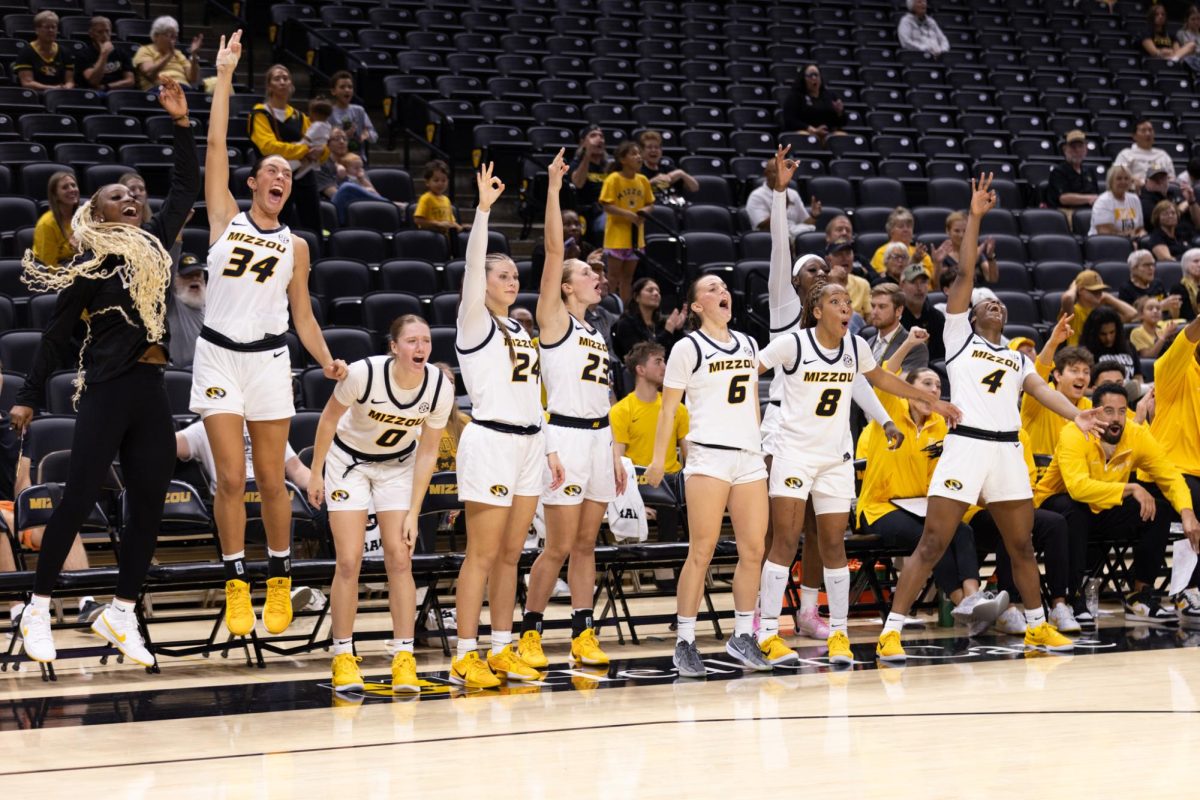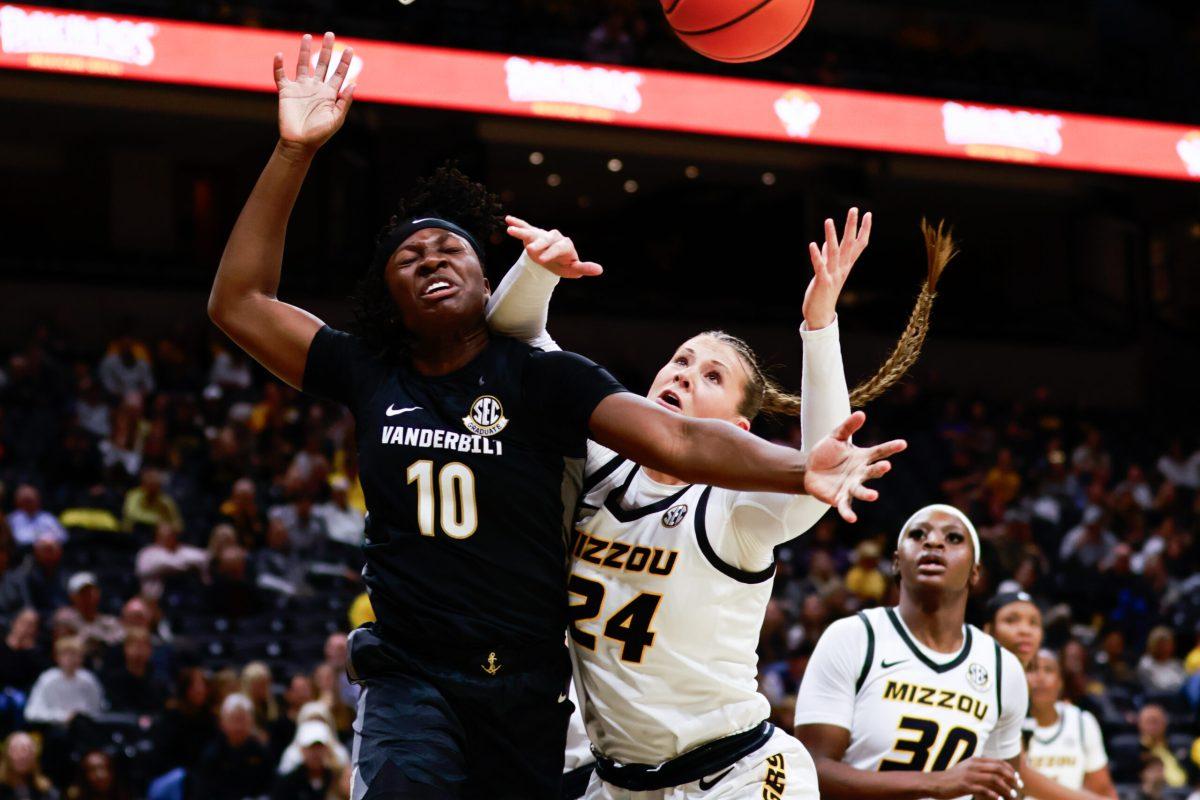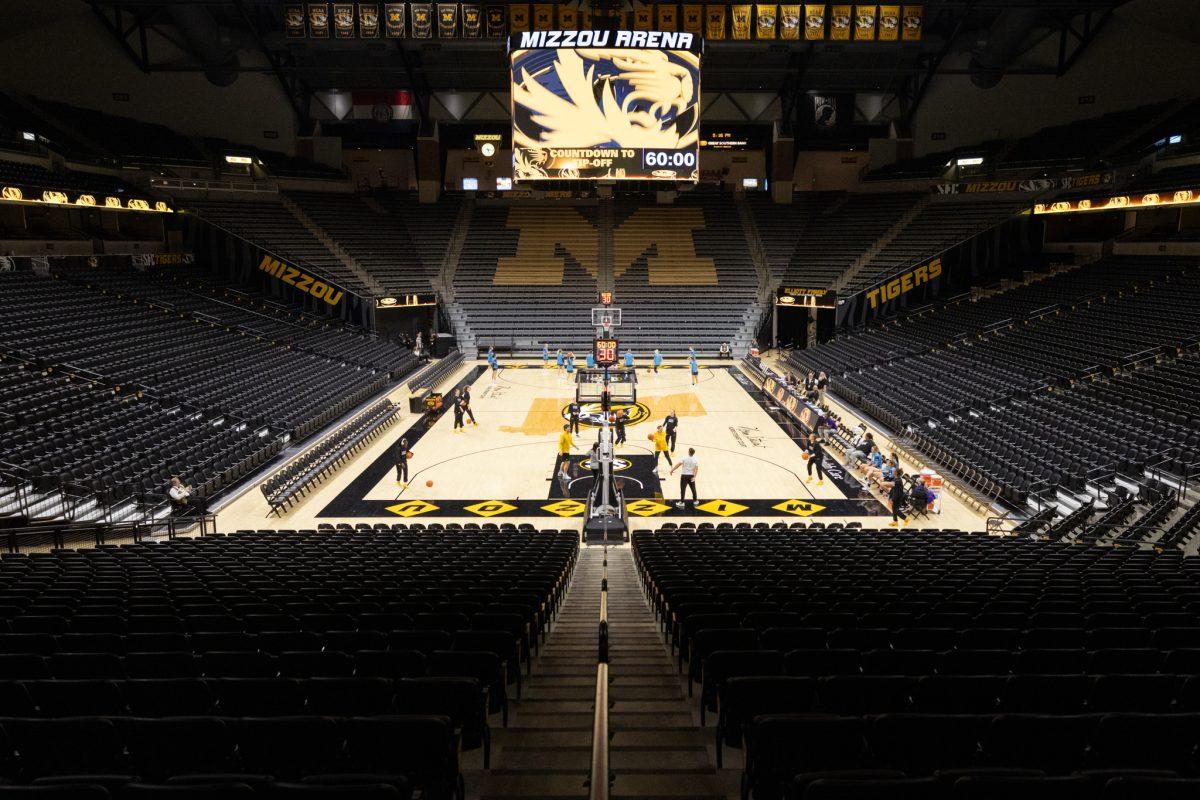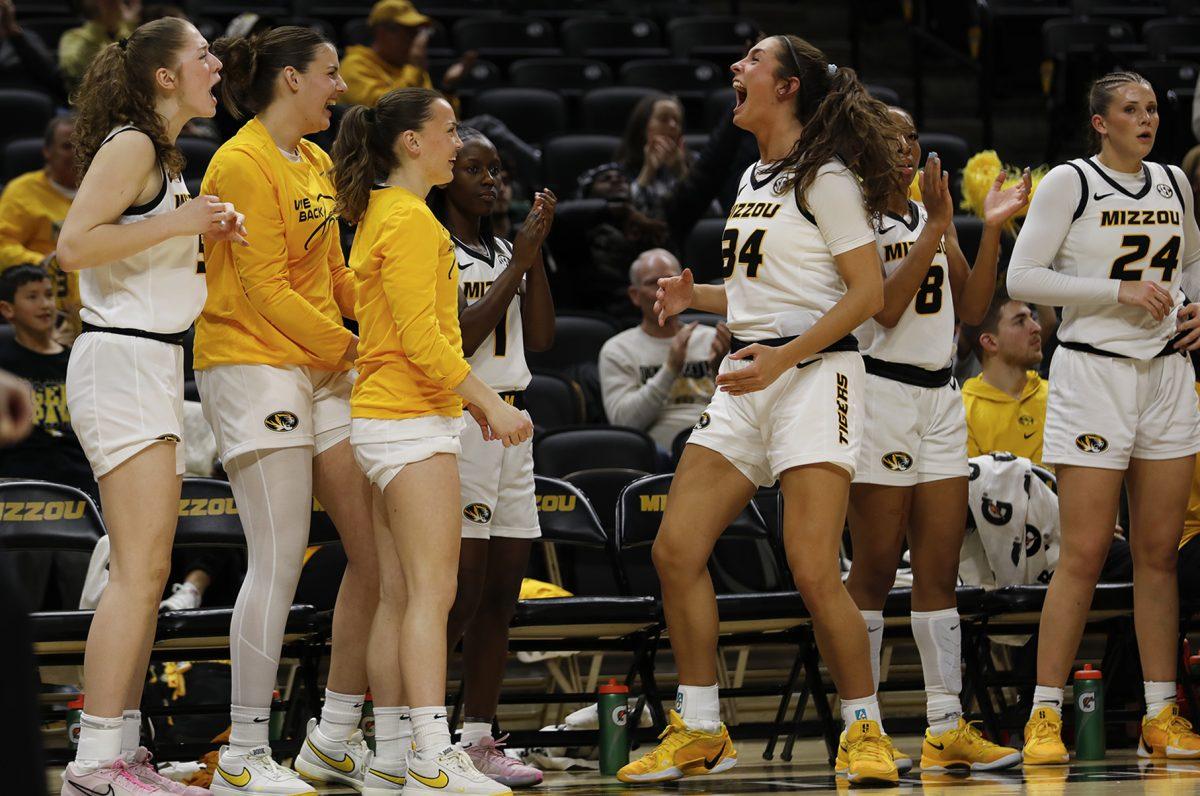Missouri women’s basketball began SEC play with one of the program’s most historic victories over No. 1 South Carolina and followed up the performance with an overtime win against Auburn. After a 2-0 start to their conference schedule, the Tigers lost three consecutive games by an average of 7.33 points.
The stretch marked a grim period for the 15-6 Missouri team, which won 10 consecutive games to begin the season. However, even with a few tough losses, there are key takeaways from each one:
Missouri 73 , Arkansas 83
- Turnovers, turnovers and even more turnovers:
Missouri finished its rivalry game against Arkansas with a -11 turnover margin, including a -7 mark in the first half alone.
The Tigers committed 13 total turnovers while the Razorbacks finished with only two. Missouri’s giveaways resulted in 13 Arkansas points and created an insurmountable deficit for the Tigers.
Razorbacks sophomore guard Sasha Goforth intercepted an errant pass from Missouri junior guard Aijha Blackwell on the Tigers’ second offensive possession, establishing the tone for the rest of the first half.
With Arkansas holding onto a 14-11 lead late in the first quarter, Missouri grabbed a rebound with a chance to tie the game up, but Blackwell traveled to give Arkansas the ball. The Razorbacks capitalized on the miscue with a 3-pointer to stretch its lead to 6 points.
The Tigers would not come within 6 points for the rest of the game, repeating the same mistakes again in the second quarter. Missouri junior forward Hayley Frank lost a dribble, junior guard Lauren Hansen lost control of the ball and sophomore guard Sara-Rose Smith watched her pass land in Arkansas junior guard Makayla Daniel’s hands.
These controllable mistakes gifted the Razorbacks 7 points that occurred in under four minutes, which allowed Arkansas to build a 34-20 lead with 4:16 remaining in the first half. While Missouri avoided turnovers for the rest of the half, the damage was done and the Tigers entered halftime with a 17-point deficit.
Missouri avoided the sloppy ball handling in the second half, only committing five turnovers the rest of the way. However, its defense failed to force Arkansas into similar mistakes. The Razorbacks’ two total turnovers matched the number of turnovers the Tigers committed in the fourth quarter alone.
Missouri’s carelessness with the basketball cost them 13 points and possibly the game itself. Turnovers proved to be the defining statistic for the Tigers against the feisty Razorbacks.
- Mama Dembele is a two-way player:
When Missouri fans think of sophomore guard Mama Dembele, the thought that comes to mind is her defensive intensity. However, Dembele displayed her offensive skills against Arkansas when the Tigers needed it most.
Dembele scored at least 3 points in each quarter en route to a career-high 16-point performance. She shot 5-7 from the field, including 3-3 from beyond the arc. The three 3-point baskets marked a career high for Dembele, who brought Missouri within 9 points of Arkansas with 8:16 remaining in the fourth quarter on her third 3-pointer.
Defensively, Dembele forced one of Arkansas’ two turnovers with a steal late in the first quarter and consistently created defensive pressure, finishing with a team-high -2 plus-minus. She also dished out five assists while only committing two turnovers.
Dembele’s defensive presence is one Missouri fans are accustomed to, but a strong offensive performance gives the Tigers another offensive weapon. Even without a victory, Missouri fans witnessed a career offensive output from Dembele, which may be a sign of things to come from the second-year guard.
Missouri 85 , then-No. 12 LSU 87
- Junior trio is Missouri’s key going forward:
The junior trio of Blackwell, Frank and Hansen drives Missouri’s offense with their different play styles and strengths.
Blackwell’s size and pace from the guard position create mismatches for opposing teams, who do not know how to limit her production.
Frank can be a defensive nightmare due to her efficiency from beyond the arc and ability to open up the lane with off-ball screens.
Hansen’s ball handling and quickness force opponents into protecting the paint, but she shoots 40.9% from beyond the arc as well.
With these unique skill sets, the trio tests defenses on a nightly basis. Against LSU, the trio accounted for 68 of Missouri’s 85 points, including 37 of its 46 second-half points.
Blackwell scored a game-high 26 points and grabbed 17 rebounds. Frank added 19 points on 6-12 shooting from beyond the arc, while Hansen scored 17 of her 23 points in the second half to lead the Tiger comeback.
After entering halftime with an 11-point deficit, Missouri’s trio led an improbable comeback against the nation’s then-No. 12 team. They combined for 37 points over the final 20 minutes and outscored LSU’s entire team 37-35 in the second half.
Blackwell fouled out with a minute remaining in overtime while Frank and Hansen did not attempt a field goal in the game’s final three minutes, sealing the victory for LSU.
Despite the loss, the Tigers’ trio showcased its potential against a premiere opponent and provided a blueprint for success going forward.
- Without LaDazhia Williams, Missouri lacks valuable size:
Missouri redshirt senior forward LaDazhia Williams left early in the second quarter against Arkansas with a groin injury. Williams’ absence forced Missouri to play with a smaller lineup, exposing a glaring weakness.
LSU outrebounded Missouri 45-31, including an overwhelming 16-6 difference on the offensive glass. While LSU only earned 10 second-chance points on those offensive rebounds, it exploited Missouri’s lack of size down low.
LSU outscored Missouri 42-28 in the paint and blocked six shots, including Dembele’s game-tying attempt at the buzzer. Without a taller presence down low, LSU pounded the paint and forced Missouri to rely on the 3-point shot offensively.
Frank (6-foot-1) and Blackwell (6-foot) acted as Missouri’s frontcourt down the stretch, but LSU’s 6-foot-5 center duo of graduate Faustine Aifuwa and sophomore Hannah Gusters spotlighted the absence of Williams’ 6-foot-4 frame.
As a team who already ranks 12th in the SEC in rebounding, Missouri will need to find an answer to its lack of size. With 6-foot-4 redshirt sophomore forward Micah Linthacum and 6-foot-3 sophomore center Jayla Kelly on the bench, an immediate solution may exist.
Then-No. 13 Georgia 72, Missouri 62
- Missouri’s slow start highlights a familiar theme:
Every Missouri opponent has reached the 10-point mark before the Tigers since Dec.12 against Alabama A&M. The Tigers’ slow starts have given opponents an early edge and forced Missouri to play catch-up in the remaining quarters.
Against then-No. 13 Georgia, those trends continued once again. The Bulldogs jumped out to a 7-0 advantage behind a mid-range jumper and a 3-pointer from sophomore guard Sarah Ashlee Barker. Two free throws and 4 points off Missouri turnovers increased Georgia’s lead to 13-5 with 4:49 remaining.
The Bulldogs closed the first quarter on a 10-5 run to complete their dominant first quarter with a 23-10 lead. Georgia shot 64.3% from the field in the first quarter, while Missouri staggered to a 36.4% mark.
The 13-point lead after the first quarter proved to be insurmountable for the Tigers, who fought back to within 1 point, but ultimately lost the contest by 10 points.
Missouri’s lackluster starts may have been enough to overcome teams like Illinois, Auburn and even No. 1 South Carolina, but the Tigers will struggle to defeat established SEC programs without starting out strong.
- Aijha Blackwell is the Tigers’ most important player:
Blackwell is essential to Missouri’s success and adds a dimension of play that cannot be matched by any one player. Her size, strength and pace create tough defensive assignments for opposing teams and open opportunities for other players to find open looks.
Blackwell leads the nation in rebounding with 13.6 rebounds per game, ranks fifth in the SEC in field goal percentage and is tied for first in the nation with 16 double-doubles.
Missouri averages 36.8 rebounds per game as a team, meaning Blackwell accounts for 37% of the team’s rebounds alone. While shouldering over a third of the team’s rebounding, she also averages 16.6 points per game.
Against Georgia, Blackwell scored 25 points in the last three quarters to help Missouri fight back from a 13-point deficit, but the Bulldog defense limited the rest of the Tigers’ offense.
She finished with 13 rebounds as well, helping Missouri win the rebounding battle 36-33, even without Williams. Blackwell’s performance marked the seventh consecutive game she has recorded a double-double.
If the final three quarters against Georgia were any indication, the offense runs through Blackwell. In the quarter where she scored 2 points, Missouri only mustered 10 points. In the final three quarters, Missouri outscored Georgia 52-49 with Blackwell accounting for nearly half of those points.
After her performances against Georgia and LSU, Blackwell earned SEC Co-Player of the Week honors. She averaged 26.5 points and 15 rebounds in the two games, showcasing her talent against the nation’s top programs.
Even with playmakers behind her, Blackwell is the engine to Missouri’s offense.
However, the results of these three games all represent a central theme:
- The Tigers are flat-out resilient:
Missouri faced a double-digit deficit in each of these games.
Against Arkansas, Missouri fell behind 47-27 right before halftime and fought back late to bring the deficit to single digits before losing by 10 points.
Missouri faced a similar obstacle before halftime against LSU when they faced a 13-point deficit, but they battled back to force overtime against the nation’s then-No. 12 team.
Georgia’s 13-point first-quarter lead signaled another barrier, but the resilient Tigers fought back within 1 point in the fourth quarter against the nation’s then-No. 13 team.
Although Missouri’s double-digit deficits represent an underlying issue, the team’s ability to battle through adversity and fight until the end is a result of its toughness.
Edited by Riley Gearhart | [email protected]


